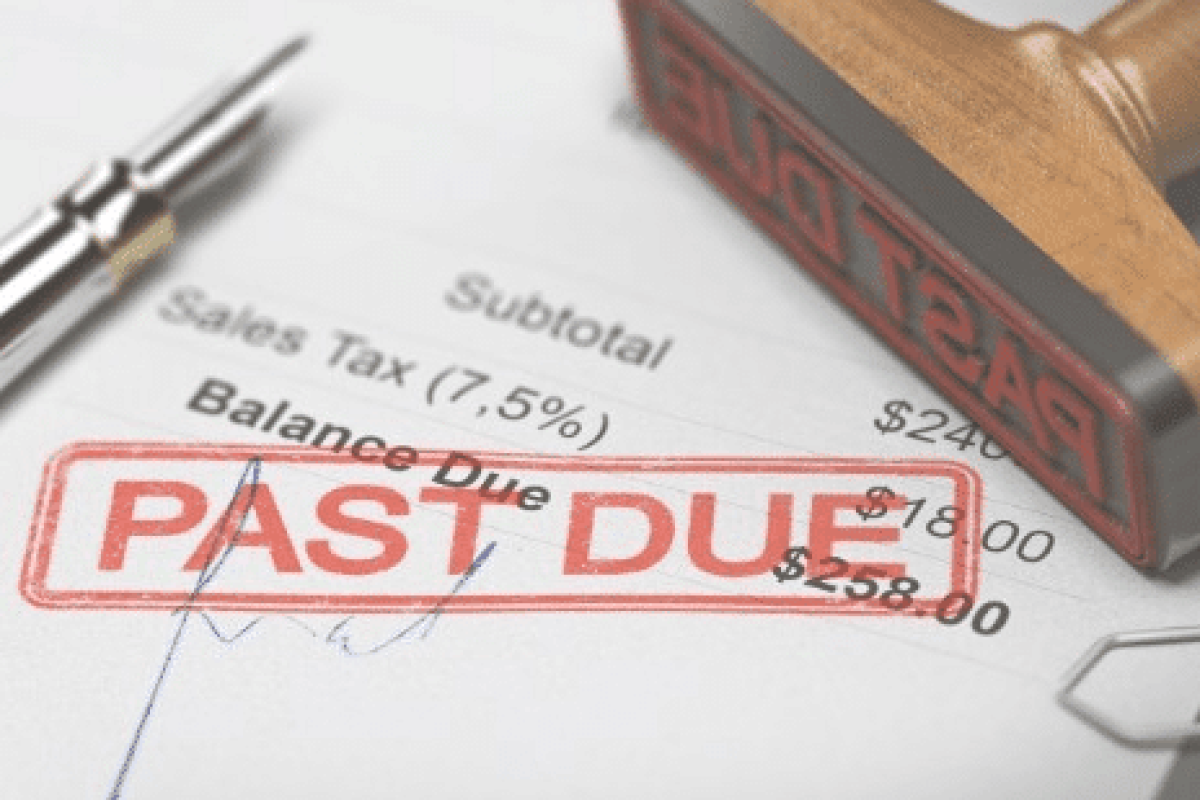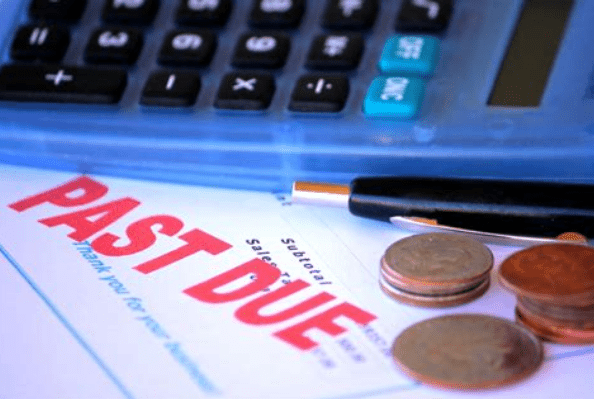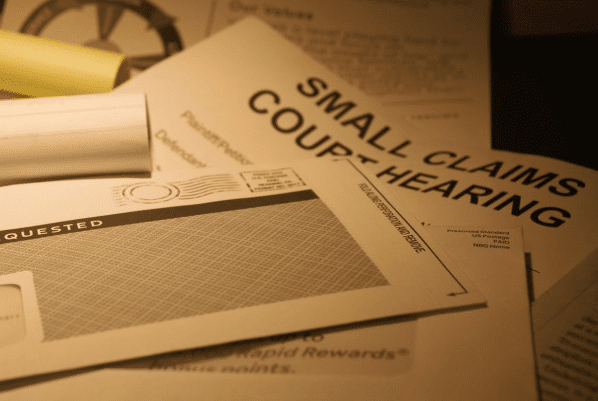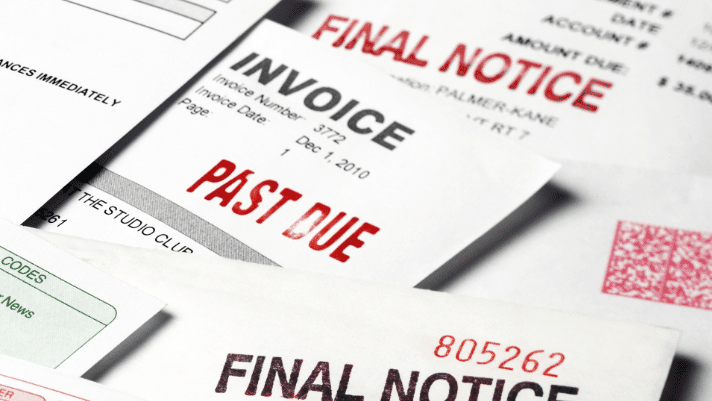In Illinois, you’re allotted 30 days to respond to a debt collection lawsuit. This requires filing both an Appearance and Answer document. Filing fees typically range from $109 to $251. Simplify the process with ZumaZip, enabling you to draft your Answer and file both documents swiftly, all within minutes!
Dealing with a debt collection lawsuit in Illinois can be daunting, especially when you’re already facing financial challenges. Responding to the lawsuit is crucial as it significantly increases your chances of not having to pay the debt. Many debt collectors file lawsuits without adequate evidence or resources to pursue the case fully, often relying on debtors not showing up to court.
ZumaZip equips you with the tools necessary to effectively challenge a debt collector’s lawsuit, in accordance with Illinois debt collection laws. By responding, you have the opportunity to demonstrate to the court that the debt collector’s claims are unfounded and that you do not owe the alleged debt.
In our blog, we provide an overview of how to respond to a debt collection lawsuit in Illinois, covering essential details such as how, when, and where to respond. Armed with this knowledge, you can confidently assert your rights in court and strive for a favorable outcome.
Table of Contents
- Table of Contents
- Deadline to respond
- Illinois Answer to Complaint forms
- Filing fees
- Steps to Respond
- What is ZumaZip?
- Statute of Limitations in Illinois
- Illinois Legal Aid Organizations
- Request a debt validation
- Key Takeaways
- Spot a fake Summons
Respond to your Illinois debt collection Summons before the deadline
Generally, the deadline to respond to a debt collection lawsuit in Illinois is 30 days. The clock starts on the deadline as soon as the Summons and Complaint have been officially served to the defendant.
More specifically, Illinois Rules of Civil Procedure 735 ILCS 5/2-208 states:
“No default shall be entered until the expiration of at least 30 days after service. A default judgment entered on such service may be set aside only on a showing which would be timely and sufficient to set aside a default judgment entered on personal service within this State.”
This is just a fancy, legal way of saying that you have 30 days from the day you received the Summons and Complaint to file your Appearance and Answer forms in the court before you lose by default. After the deadline, the debt collector can file a motion for default judgment, and if it is granted, will have the right to garnish your wages and seize your property.
Respond to your debt collection lawsuit before the deadline with ZumaZip.
Use an Illinois Answer to Complaint form
There are a number of ways to create an “Answer,” or response, to a debt collection lawsuit. The first, and easiest, way is to use the ZumaZip Debt Answer form.
At ZumaZip, software guides you through the process to respond to a debt lawsuit in Illinois (or any State in the United States). It takes minutes to fill out the form online, and it is personalized to your case. Check out our easy-to-use automated service.
Here’s a sample of the Answer form you can create with ZumaZip.
The other way to respond in Illinois is to use the forms provided by the State of Illinois court system, if you would like to do it on your own. The form is found here: AR-A 1403.4.
You must also file an “Appearance” at the same time you file an Answer. While an Answer essentially responds to the Complaint, the Appearance is the way you tell the court that you wish to be heard in the lawsuit. As with the Answer, ZumaZip can help you create your Appearance document. That said, if you want to do it on your own, you can also find the Appearance form here: AP-P 503.7.
Given that you need to respond in a format that an Illinois court will accept, it is important to take advantage of either ZumaZip’s automated service, or the forms provided by the Illinois courts.
Illinois courts charge a filing fee for Appearances and Answers
In order to file an Answer in Illinois, you must first file an Appearance form. This is an official declaration that you plan to appear in court and fight the case. The fee to file an Answer is technically free, but you must pay a fee in all Illinois courts to file an Appearance. Without an Appearance, your Answer will not be considered.
Each court in Illinois has specific fee amounts to file an Appearance and Answer. In general, the filing fee in Illinois ranges from $109-$251, depending on the amount in question and the court that has jurisdiction over the case.
ZumaZip calculates the filing fee for you and delivers it to the court.
You can also try calling the court clerk to figure out your filing fee amount. There are two different Appearance filing fee amounts for each Illinois court: one for small claims cases that involve $2,500 or less, and another for cases with more than $2,500 at stake.
Knowing how much you are being sued for will help you figure out how much you have to pay to file your response. If you cannot afford to pay the filing fee, you can ask the court to waive the fee. Of course, as with all bureaucracies, you will need to fill out yet another form. To request a fee waiver, fill out the Application for Waiver of Court Fees form, which is basically you asking the court to allow you to file your Appearance and Answer documents for free.
To demonstrate, let’s look at an example of how to file an Answer in the Small Claims Court Illinois Cook County.
Here’s an example scenario:
Steve found himself facing a lawsuit from Cavalry SPV for an old credit card debt totaling $1,200. The case was filed in the Small Claims Court of Illinois Cook County. To respond, Steve needed to file both an Appearance and an Answer. Fortunately, he turned to ZumaZip, which assisted him in drafting his Answer document and filing both documents into the case seamlessly.
The court charged Steve $151 for filing fees. However, luck was on his side as Cavalry SPV ultimately decided to drop the case. Their decision came after realizing there wasn’t enough evidence to substantiate Steve’s alleged debt.
Follow these steps to respond to a debt collection case in Illinois
Now that we have talked a little about filing deadlines and fees, let’s quickly review the basics of a debt collection case in Illinois so you understand the process and the necessary documents that are part of that process.
A debt collection lawsuit begins when the plaintiff (debt collector or the collector’s lawyer) files a lawsuit in court. Then, the plaintiff must send a court Summons and Complaint to the defendant (the person being sued). The titles of these documents really help explain what they are.
The “Summons” literally summons, or calls, you into court. It is an official notification that you are being sued for a debt that you supposedly owe.
The “Complaint,” on the other hand, is what the debt collector is literally complaining about. It lists all the specific allegations, or claims, being made against you. In a debt collection lawsuit, the Complaint essentially states the following: “You owe me money, and you have not paid.”
Once you get the Summons and Complaint in hand, it is your turn to respond. Just like in any dispute in regular life, when someone complains about something, you respond by either admitting guilt or defending yourself.
In Illinois, you must respond with an Appearance form and an Answer form. The Appearance document is a statewide form that declares you plan to appear in court. It lets you choose if you want a trial with just a judge or one with both a judge and jury. The Answer document is where you respond to each claim from the Complaint and give your defenses.
To respond to a debt collection Summons and Complaint in Illinois, follow these three steps:
- Answer each claim listed in the Complaint.
- Assert your affirmative defenses.
- File the Appearance and Answer with the court, and send a copy to the plaintiff’s attorney.
ZumaZip can help you draft and file an Answer in just 15 minutes.
1. Answer each claim listed in the Complaint
The first section of your Answer document should focus on responding to each claim that is listed in the Complaint document.
Illinois Rules of Civil Procedure Section 735 ILCS 5/2-610(a-b) states:
“Every answer and subsequent pleading shall contain an explicit admission or denial of each allegation of the pleading to which it relates.
“Every allegation, except allegations of damages, not explicitly denied is admitted, unless the party states in his or her pleading that he or she has no knowledge thereof sufficient to form a belief, and attaches an affidavit of the truth of the statement of want of knowledge, or unless the party has had no opportunity to deny.”
In other words, you must respond to each allegation, or claim, listed in the Complaint. If you don’t respond to one of the claims, the court will consider it an admission.
As you look at the Complaint you received, find the list of numbered paragraphs that contain the specific claims being made against you. You should respond to each claim in a numbered list on your Answer document.
Choose one of the following responses to each of the Complaint’s claims:
- Admit—this is like saying, “This is true.”
- Deny—this is like saying, “Prove it.”
- Deny due to lack of knowledge—this is like saying, “I don’t know.”
Most attorneys recommend that you deny as many claims as possible. This forces the other side to prove what they are claiming is true. If they don’t have enough documentation or evidence to do so, they might dismiss the case altogether.
Remember, if the Complaint has information that you both agree and disagree with, then you would be wise to choose “Deny” for those paragraphs. You will have time later to clarify what exactly you are denying in those paragraphs that are only partially true.
2. Assert your affirmative defenses
Now that you have addressed every single numbered claim in the Complaint, you’re ready to assert your affirmative defenses. As we said before, when you get in a dispute, you not only disagree with the other person’s comments, but you give reasons for why you took the actions you took. In short, you provide defenses for why you are not guilty of what you are being accused of—these are called affirmative defenses.
Section 735 ILCS 5/2-613 of Illinois Rules of Civil Procedure states:
“(d) The facts constituting any affirmative defense, such as payment, release, satisfaction, discharge, license, fraud, duress, estoppel, laches, statute of frauds, illegality, that the negligence of a complaining party contributed in whole or in part to the injury of which he complains, that an instrument or transaction is either void or voidable in point of law, or cannot be recovered upon by reason of any statute or by reason of nondelivery, want or failure of consideration in whole or in part, and any defense which by other affirmative matter seeks to avoid the legal effect of or defeat the cause of action set forth in the complaint, counterclaim, or third-party complaint, in whole or in part, and any ground or defense, whether affirmative or not, which, if not expressly stated in the pleading, would be likely to take the opposite party by surprise, must be plainly set forth in the answer or reply.”
This law means that you have the option of adding what are called “affirmative defenses” to your Answer document. These are legal reasons that explain why you do not owe the debt in question, or why the legal action being taken against you is invalid.
If you plan to use any affirmative defenses in your case, you must include them in your initial Answer document. Failure to assert an affirmative defense may mean you cannot bring up that defense in the case if it progresses to a hearing or trial.Some of the most common affirmative defenses that people use in Illinois when responding to a debt collection lawsuit include the following:
- You already paid the debt, or you started paying part of the debt.
- The agreement underlying the debt has been terminated.
- The creditor has already said that you do not owe the debt.
- You co-signed a contract, and no one told you that you would be liable under the contract.
- The lawsuit can’t move forward because the debt collector did not attach the actual agreement that supposedly created the debt.
- The debt collector lacks “standing,” meaning that the debt collector has not shown in the Complaint that he owns the debt.
- The debt collector has run out of time because he filed the lawsuit beyond the Illinois debt collection statute of limitations. As discussed further below, debt collection lawsuits must be filed within a certain amount of time.
Make the right defense the right way with ZumaZip
The Answer form may not provide space for affirmative defenses, but the form does allow you to attach additional statements to the form. You should be sure to include your affirmative defenses (as many listed above as apply to you) on that separate sheet of paper.
Unfortunately, an inability to pay a debt does not count as a valid affirmative defense.
3. File the Appearance and Answer with the court, and send a copy to the plaintiff’s attorney.
Once you have taken the time to create your Answer document, all you have left to do is (1) file the Answer with the court, and (2) make sure that the plaintiff gets a copy. Let’s talk about those two steps.
To file your Answer with the court, Illinois requires that you file online. The way to do that is to follow the instructions for e-filing. If you do not have access to a computer, then you can go to the Circuit Court Clerk’s office for help e-filing your Answer; in some areas, you may be required to use a public terminal to e-file. The Answer can either be on paper or saved on a flash drive. E-filing can be surprisingly complicated; here is more information.
The court will not consider your Answer document if it is not filed with an Appearance document. This rule is only specific to Illinois. So, when filing your Answer, be sure to file an Appearance form as well.
To send a copy to your adversary, you can send your Answer by hand delivery, by regular mail, by FedEx or UPS, or email (if the adversary provided an email address). Remember the debt collector should get a copy of your Answer. But if the debt collector has an attorney, then the Answer should go to that attorney’s address instead.
Make sure that you keep a copy of your Appearance and Answer for your records.
ZumaZip can file your Answer for you in Illinois and all other states.
Finally, the State of Illinois asks that you include a “Proof of Delivery” section in your Answer. Room on the Answer form is provided for this Proof of Delivery information. Simply put, the Proof of Delivery is the way that you tell the court how you sent a copy of your Answer to the debt collector, or his lawyer. ZumaZip’s Answer form includes this section.
ZumaZip is a comprehensive tool designed to empower individuals in their dealings with debt collectors. It offers a range of functionalities to assist users in effectively managing debt-related challenges:
- Response to Lawsuits: ZumaZip facilitates the process of responding to debt lawsuits, ensuring users are equipped to address legal proceedings efficiently.
- Communication with Collectors: Users can utilize ZumaZip to correspond with debt collectors by sending letters directly through the platform.
- Debt Settlement: ZumaZip streamlines the debt settlement process, providing guidance and support to users seeking to negotiate favorable resolutions.
ZumaZip’s Answer service stands out as a user-friendly, step-by-step web application. It guides users through the completion of their Answer document by prompting them with all necessary questions. Additionally, each document undergoes attorney review before being filed, ensuring accuracy and compliance with legal requirements.
In summary, ZumaZip offers a comprehensive suite of tools to assist individuals in navigating debt-related challenges effectively, providing peace of mind and empowering users to take control of their financial situations.
Check the statute of limitations on debt in Illinois
Debt collectors cannot hold a debt over your head forever. Illinois debt collection laws protect you from being sued for debt that is super old. The Illinois statute of limitations on debt declares that creditors only have a limited amount of time to sue you for a debt. The limitations period depends on the kind of debt you owe.
In Illinois, the statute of limitations on debt resulting from an oral contract is five years, according to Illinois Rules of Civil Procedure 735 ILCS 5/13-205.
For credit card debt, medical debt, auto loan debt, student loan debt, mortgage, debt, and other personal loan debt, the Illinois statute of limitations is tens years, as outlined in (735 ILCS 5/13-206).
The table below further outlines the Illinois statute of limitations on different types of debt:
| Debt Type | Deadline |
|---|---|
| Oral Contract | 5 years |
| Credit Card | 10 years |
| Medical | 10 years |
| Auto Loan | 10 years |
| Student Loan | 10 years |
| Mortgage | 10 years |
| Judgment | 20 years |
| Source: 735 ILCS 5/13-205, 5/13-206, and 5/13-218 |
It’s important to understand that the statute of limitations for a debt starts from the date of your last payment. If a debt collector contacts you about an old debt and you start making payments, the statute of limitations clock resets. Therefore, it’s crucial to check the statute of limitations on your debt before making any payments, acknowledging the debt, or agreeing to payment plans.
Additionally, in Illinois, the statute of limitations on a judgment is infinitely renewable. This means that if you’re sued and a judgment is entered against you, the plaintiff can continue to renew the judgment until the debt is paid off, often through methods like wage garnishment.
Here’s an example scenario:
Mike, a resident of Illinois, ceased payments on his credit card account approximately six years ago. Recently, he received communication from a debt collector regarding the debt, which had been sold to them by the credit card company. The collection agency sought to collect $800 from Mike and eventually filed a lawsuit against him.
After conducting online research, Mike discovered that the statute of limitations on the debt was five years and had already expired. Using ZumaZip, he drafted an Answer to the lawsuit, citing the expiration of the statute of limitations as one of his affirmative defenses. Several weeks later, Mike learned that the debt collection agency had dismissed the case.
In this example, Mike effectively utilized his knowledge of the statute of limitations and leveraged ZumaZip to craft a successful defense against the debt collection lawsuit.
Utilize Illinois legal aid organizations
Hiring an attorney can be tricky and expensive. Luckily, the state of Illinois has several legal aid organizations that can help people who cannot or do not want to hire a lawyer and are representing themselves. Here are some of the prominent legal aid organizations in Illinois:
Prairie State Legal Services, Inc. (for Northern Illinois)
303 North Main Street, Suite 600
Rockford, IL 61101
(815) 965-2134
https://www.pslegal.org/
Land of Lincoln Legal Assistance Foundation, Inc. (for Southern Illinois)
8787 State Street, Suite 201
East St. Louis, IL 62203
(887) 342-7891
https://lincolnlegal.org/
Online Legal Aid
https://www.illinoislegalaid.org/
Illinois court locations
If you don’t feel comfortable sending your court documents over e-file, you can always visit your courthouse and file in person. Use this Illinois Courts Directory tool to find the address of your courthouse. You can also use this list of Illinois court clerks if you want to call and ask any questions about filing.
Knowing where your courthouse is located can help you be better prepared for your trial and stay updated on your case status.
Respond to a collection agency in Illinois
If you’ve only received a collections notice, but not a lawsuit, the best way to respond is with a Debt Validation Letter.
When a debt collector contacts you in any way, whether it’s by phone or mail, you can respond by formally requesting a debt validation with a Debt Validation Letter . This letter notifies the collector that you dispute the debt and forces them to provide proof you owe the debt. They can’t call you or continue collecting until they provide validation of the debt.
Get started with a Debt Validation Letter here.
Here are the key takeaways for responding to a debt collection lawsuit in Illinois:
- You have 30 days to respond to a debt collection lawsuit with an Answer document.
- Along with your Answer, you must file an Appearance form. The Appearance filing fee ranges from $109 to $251, depending on the court.
- Utilize ZumaZip to draft and file your Answer, addressing each claim from the Complaint and asserting affirmative defenses.
- The statute of limitations on credit card debt in Illinois is ten years.
- Seek assistance from Illinois’s legal aid organizations if needed, and don’t hesitate to contact the court clerk for basic questions about your case.
By responding promptly and utilizing available resources, you can effectively defend yourself against a debt collection lawsuit in Illinois, protecting your rights and financial well-being.
What is ZumaZip?
ZumaZip is a convenient solution designed to streamline your response to a debt collection lawsuit. Here’s a breakdown of what you can expect when you use ZumaZip:
Firstly, you’ll access our user-friendly web application, which guides you through the process step by step. You’ll be prompted to answer a series of questions related to your specific situation. Once you’ve completed the questionnaire, you have the option to either print out the finalized forms and mail them to the appropriate courts yourself, or you can opt to utilize ZumaZip’s services to file them on your behalf. Additionally, if you choose this option, an attorney will review your document for added peace of mind.
If you’re seeking guidance on how to effectively respond to a debt collection lawsuit, ZumaZip can provide the assistance you need. Feel free to explore our FAQs for more information on what ZumaZip has to offer.
What if I haven’t been sued yet?
If you’ve only received a collections notice, but not a lawsuit, the best way to respond is with a Debt Validation Letter. When a debt collector contacts you in any way, whether it’s by phone or mail, you can respond by formally requesting a debt validation with a Debt Validation Letter . This letter notifies the collector that you dispute the debt and forces them to provide proof you owe the debt. They can’t call you or continue collecting until they provide validation of the debt. This flowchart shows how you can use a Debt Validation Letter to win.
Get started with a Debt Validation Letter here.
How to Answer a Summons for debt collection in all 50 states
Here’s a list of guides on how to respond to a debt collection lawsuit in each state:
- Alabama
- Alaska
- Arizona
- Arkansas
- California
- Colorado
- Connecticut
- Delaware
- Florida
- Georgia
- Hawaii
- Idaho
- Illinois
- Indiana
- Iowa
- Kansas
- Kentucky
- Louisiana
- Maine
- Maryland
- Massachusetts
- Michigan
- Minnesota
- Mississippi
- Missouri
- Montana
- Nebraska
- Nevada
- New Hampshire
- New Jersey
- New Mexico
- New York
- North Carolina
- North Dakota
- Ohio
- Oklahoma
- Oregon
- Pennsylvania
- Rhode Island
- South Carolina
- South Dakota
- Tennessee
- Texas
- Utah
- Vermont; Vermont (Small Claims court)
- Virginia
- Washington
- West Virginia
- Wisconsin
- Wyoming
Guides on how to beat every debt collector
Hey there! Facing off against a debt collector can feel like a daunting challenge, but fear not! We’re here to help you navigate through it all with our handy guides designed to assist you in beating every debt collector you encounter. Whether you’re facing a new lawsuit or dealing with a persistent collector, we’ve got your back. Stay positive, stay informed, and let’s tackle this together!
- Absolute Resolutions Investments LLC
- Accredited Collection Services
- Alliance One
- Amcol Clmbia
- American Recovery Service
- Asset Acceptance LLC
- Asset Recovery Solutions
- Associated Credit Services
- Autovest LLC
- Cach LLC
- Cavalry SPV I LLC
- Cerastes LLC
- Colinfobur
- Covington Credit
- Crown Asset Management
- CTC Debt Collector
- Cypress Financial Recoveries
- Delanor Kemper & Associates
- Eagle Loan of Ohio
- Educap
- Estate Information Services
- FIA Card Services
- Forster & Garbus
- Freshview Solutions
- Fulton Friedman & Gullace LLP
- Harvest Credit Management
- Howard Lee Schiff
- Hudson & Keyse LLC
- Integras Capital Recovery LLC
- Javitch Block
- Jefferson Capital Systems LLC
- LVNV Funding
- Mannbracken
- Mariner Finance
- Medicredit
- Michael J Adams PC
- Michael J Scott
- Midland Funding LLC
- Mullooly, Jeffrey, Rooney & Flynn
- Mountain Land Collections
- MRS Associates
- National Collegiate Trust
- Nationstar Foreclosure
- Northstar Capital Acquisition
- NCEP LLC
- NRC Collection Agency
- OneMain Financial
- Palisades Collection LLC
- Pallida LLC
- Paragon Revenue Group
- Pinnacle Collections Agency
- PMAB LLC
- Portfolio Recovery Associates
- Provest Law
- PYOD LLC
- Reunion Student Loan Finance Corporation
- Revenue Group
- Regents and Associates
- RSIEH
- Salander Enterprises LLC
- Second Round Sub LLC
- Security Credit Services
- Sherman Financial Group
- Suttell and Hammer
- T-Mobile
- Transworld Systems
- Tulsa Teachers Credit Union
- UCB Collection
- Velo Law Office
- Velocity Investments
- Waypoint Resource Group
- Weinberg and Associates
- Wolpoff & Abramson
Settle your medical debt
Having a health challenge is stressful, but dealing medical debt on top of it is overwhelming. Here are some resources on how to manage medical debt.
- Am I Responsible for My Spouse’s Medical Debt?
- Do I Need a Lawyer for Medical Bills?
- Do I Need a Lawyer to Fight Medical Bill Debt?
- Does Bankruptcy Clear Medical Debt?
- How Much Do Collection Agencies Pay for Medical Debt?
- How to Find Medical Debt Forgiveness Programs
- Is There a Statute of Limitations on Medical Bills?
- Medical Debt Statute of Limitations by State
- Summoned to Court for Medical Bills — What Do I Do?
- Summoned to Court for Medical Bills? What to Do Next
Stop calls from Debt Collectors
Do you keep getting calls from an unknown number, only to realize that it’s a debt collector on the other line? If you’ve been called by any of the following numbers, chances are you have collectors coming after you, and we’ll tell you how to stop them.



































